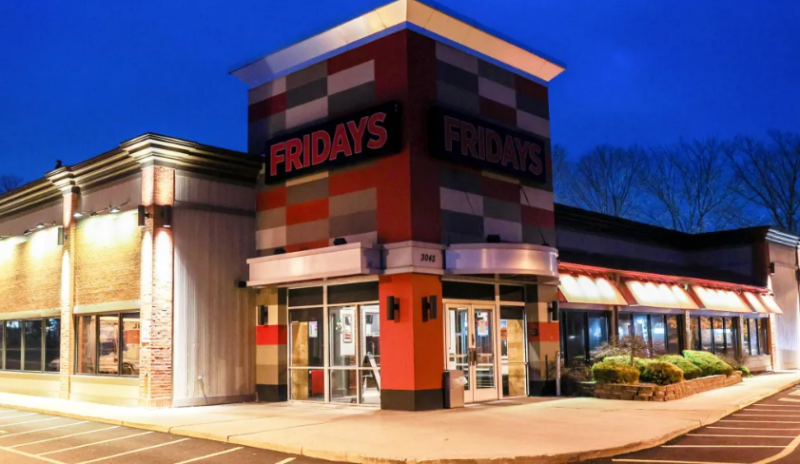TGI Friday’s Preparing For Bankruptcy
TGI Friday’s Inc., the iconic casual-dining chain that once defined the American bar-and-grill scene, is reportedly gearing up for a bankruptcy filing in the coming weeks, according to sources familiar with the situation.
The company has been grappling with growing financial pressure, driven by customers tightening their budgets and a shift in dining preferences toward faster, more affordable options. Despite efforts to turn the business around, TGI Friday’s has struggled to stay afloat, joining a growing list of casual dining giants facing the same fate.
Currently working with legal advisors from Ropes & Gray LLP, the company is making preparations for bankruptcy, although the plans are not yet finalized and could still change. While neither TGI Friday’s nor Ropes & Gray have commented on the matter, the signs of financial trouble have been apparent.
The company’s recent failure to meet asset-backed securities obligations, including missing crucial filings to bondholders, resulted in the transfer of some assets to external management—a clear indication that TGI Friday’s has hit turbulent waters.
Theres a collapse happening
Walgreens
7-11
TGIF
Big Lots
Dirt Cheap
Hootersand this is just a few exampleshttps://t.co/up50hoPnCa
— Tim Pool (@Timcast) October 22, 2024
TGI Friday’s is not alone in its struggles. The casual dining sector, long a staple of American culture, has been under siege from fast-casual competitors like Chipotle, which have captured a large share of customers seeking quicker, more affordable meals. The Covid-19 pandemic only exacerbated these challenges, with prolonged closures and a dramatic drop in customer traffic pushing many chains to the brink of collapse.
Earlier this year, Red Lobster Management LLC filed for bankruptcy after years of declining revenues, made worse by its infamous “Endless Shrimp” promotion, which led to significant losses. Meanwhile, Hooters, known for its wings and servers in revealing uniforms, is also in talks with lenders as it faces similar financial woes.
TGI Friday’s, which began in Manhattan in the 1960s as a groundbreaking concept—a place where singles, particularly women, could comfortably gather—once stood at the forefront of the casual dining revolution.
Its early success led to nationwide expansion, with restaurants that featured walls adorned with local antiques and memorabilia, creating a sense of nostalgia and community. However, over the years, the chain has shed much of that signature style, and the brand’s identity has struggled to keep pace with evolving dining trends.

